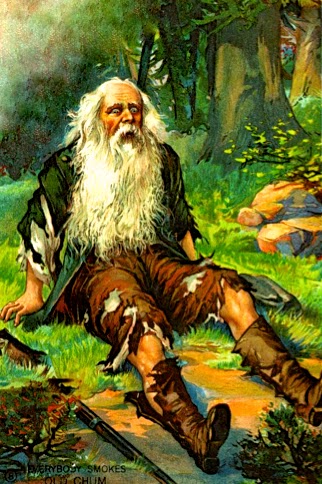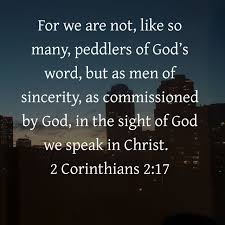Recovering Your Wasted Years

|

|

If then you were raised with Christ, seek those things which are above,
where Christ is, sitting at the right hand of God.
Set your mind on things above, not on things on the earth.
When Christ who is our life appears, then you also will appear with Him in glory.
Therefore put to death your members which are on the earth:
fornication, uncleanness, passion, evil desire, and covetousness, which is idolatry.
Because of these things the wrath of God is coming upon the sons of disobedience,
in which you yourselves once walked when you lived in them." (Colossians 3:1-7)
True Human Potential (Ray Stedman)
For several years I've been concerned about the cultural and spiritual disconnect between Gens x, y, z and their parents.
The followers of Christ in the older gens tend to choose mainline denominational churches.
Members of these older generations tend to subscribe to a two-tiered universe.
Since the sexual revolution back in the '60's, the younger gens tend to belong to spiritual life in a one-storied generation.
For either group, the same Jesus is the true Lord and Savior.
They need to gather together with other Christians; compare notes an reboot.
Both groups are right, and both are wrong! The older gen bears the greater responsibility. (Romans 1:18-21)
(
Reverence, awe and respect for an awesome Creator should characterize every one of us.
Beyond that bare minimum we live in a land of comparative freedom and enlightenment sent down to us by our Creator.
His love for us is self-giving and self-sacrificing. It's a huge mistake to take God for granted.
Actually we would know nothing about God, His nature, His Person if He had chosen to stay hidden behind the scenes.
![]()
There’s an operation underway. Its scope and grandeur are not immediately nor blatantly apparent, but it’s one of which each and every human has a wistful inkling. The Creator of the cosmos is the conspirator behind it all, and he doesn’t force anyone to be part of it, but invites everyone to join. It’s more than a get-out-of-jail forgiveness voucher—it’s an opportunity to be part of a cosmos-rearranging project that echoes into eternity.
1. Over-familiarity with Jesus has bred contempt and despair among long-time Christians.
It’s often remarked that familiarity breeds contempt. But in the case of Jesus, our over-familiarity with him has led us to a picture of him that is at odds with who he really is. Over-familiarity has led to unfamiliarity, and that has led to contempt and hopelessness. Very few people—even professing followers of Christ—actually find Jesus interesting and captivating. He’s historical and perhaps mystical, but utterly removed from our day-to-day affairs. The Sunday-schooled are familiar with Jesus’ parable of the man who builds his house on the rock instead of the sand, because the house on the firm foundation weathers the storm. “Whoever hears these words of mine and does them is like those intelligent people who build their houses upon rock,” Jesus tells his listeners in Matthew 7. We are so familiar with this story that we forget how remarkable this is. What if we committed ourselves to building our lives around Jesus’ words and seeking out how best to inhabit the kingdom of God that Jesus kept talking about? We would not be the same. The image of a “nice” but removed and anemic Jesus is a common image for believers and non-believers alike. He bears no relevance to our daily lives 20 centuries later, we unconsciously submit. But Jesus himself calls his words “spirit and truth.” The man and his message are intensely real; they confront the “real world” we live in with a reality that is almost “too real” for us to handle. This is why many Christians spend their whole lives protecting themselves from his words. The good news is that Jesus is offering us a course on Life and is always eager to take on new students. True life doesn’t begin after death; it begins when we agree to be Jesus’ apprentice in his kingdom and allow him to teach us. It’s a message not just for the dying, but for the living. This idea is not new or original, but it has been forgotten in modern Christianity. In this very moment, you are becoming who you will be forever. This is the time where the eternal “you” is being formed. Absurdity and cuteness and other distractions can be good for a laugh or worth pondering occasionally, but they cannot comprise your existential dwelling. They don’t give us true support against life’s storms or provide a sense of direction.
2. The “gospel” message has become an uninspiring sin management teaching that misses out on the true power of Jesus.
There was a popular bumper sticker years ago that read, “Christians aren’t perfect; just forgiven.” But is forgiveness really all that we have to be thankful for? Is that all there is to eternal life—that we have some kind of assurance when we die but no other dimension of our life is meaningfully impacted? Many Christians have bought into a kind of Barcode Christianity: Just as the electronic scanner at check outs registers the barcode, regardless of the kind of item, there is no guarantee that the label the scanner brings up actually reflects the item. It’s a common talking point in Protestant sermons that justification involves no change at all in the person who’s been forgiven. The locus of forgiveness is entirely extrinsic, in God—not a person. But in trying to make the point that salvation is by grace alone and through faith alone, what many pastors and theologians inadvertently tell believers is that being a Christian is utterly disconnected from the kind of person you are. Saying a brief prayer or performing some ritual is supposed to give us a spiritual barcode that God will scan on the day of our death that will come back “Christian” or “not Christian.” What begins as a bumper sticker and merchandise messaging seems innocuous until we consider the ways the “just forgiven” idea has worked its way into dense theological treatises and now carries an air of codified orthodoxy; the spillover from theologians and pastors to lay believers is evident. Ideas matter. The most dangerous ones are often the ones we’ve come to take for granted. One such dangerous idea is that the invitation Jesus offers us is nothing more than stamping a barcode on us. The truth about Jesus’ invitation to us is so much more than wiping clean a personal sin debt.
3. We don’t really use the language of the “kingdom of God,” but Jesus sure did.
Jesus invites us to receive more than a spiritual voucher that we can show a divine gatekeeper after we die. He invites us into a fullness of life we can scarcely imagine. It involves being part of his eternal purposes here and now as we bring our lives into his life. Every aspect of our existence is being transformed as we come into the kingdom of God. The kingdom of God is the presence of God in ordinary life as we accept the invitation to live in God. It’s not the main way that people think about what Jesus brought when he came; it’s not what most pastors preach about. But Jesus talks about it all the time throughout the gospel accounts, and his disciples do the same as they carry the message of Christ throughout the Mediterranean world. Jesus came to show us the Way, and he continues to do so. When the kingdom becomes more important to us, the disconnect between Jesus’ message and our everyday existence gets repaired, and suddenly, amazing resources become available to us—now! Not tools merely to mobilize for social action or a post-mortem fire insurance card, but something that renovates the heart. The kingdom of God is the deepest reality and orientation of the universe: a community of never-ending, utterly capable love. Far from being removed from our “current” realities, history reveals with remarkable consistency how Jesus is able to speak pertinently to pain and brokenness, but also to mend and bring empowerment and hope to the ordinary person who has sincerely agreed to take on an apprenticeship with Jesus. There’s a story in the gospels about a woman who bursts into the house of a religious leader in the middle of an evening party. The woman runs to Jesus and begins to weep at his feet, pouring out expensive perfume and washing his feet. The elites at the party were uncomfortable, to put it mildly. The host figured Jesus didn’t know the woman’s line of work. But the key to the kingdom is not a list of rituals or properly religious protocol, but love. She had been forgiven much and so she loved much. She—more than the religious experts of the law—had the key to the kingdom and had entered it. In a word, she went nuts. The more staid philosophical and theological depictions don’t capture the nuttiness well at all. When we are confronted with Jesus, we must turn away from him or shake free of our propriety in awestruck worship. When you truly see Jesus for who he is and understand this kingdom he kept talking about, that you have a domain that only you can tend and which can be connected to his cosmic purposes, life becomes an adventure. It becomes meaningful. Eternal life is no longer an impersonal abstraction or single event in the distant future: the eternal enters into every part of life now as we explore what it means to be hidden in God’s life and for him to work in ours. Want more insights? Go premium to access hundreds of titles in text and audio.
4. God doesn’t just love us—he likes us, too.
The good news about the kingdom is that it helps guide our lives once we see the world the way Jesus does. When Jesus was among us, he saw a good and beautiful, God-drenched world. God was in it. People wanted to be around Jesus in part because he was full of whole-hearted joy. When we see God’s life in a new way, and how the universe fits into his life, it changes the way we live and proclaim him. That same joy that Jesus has becomes ours the more we see God for who he is. Most people’s barriers to faith in Jesus are related to their understanding of who God really is. What is your deep-down feeling about God? What kind of Being do you understand him to be? Oftentimes, the associations aren’t positive, even among Christians. Here are a few important and often overlooked aspects of God. For starters, God’s life is exceptionally interesting. He’s full of joy—bursting with it, in fact. His great love and giving heart can’t be divorced from his joy. He loves gladly. The moments when we’re most joyful—joyful even to the point of euphoria, are just a small wisp and inkling of what God experiences all the time. There’s a profundity and pervasiveness to his joy we can’t grasp yet. Think of the most beautiful beach or mountain range you’ve ever seen. God sees it, too—all the time! And he sees all the other scenes of beauty that we aren’t experiencing—they’re always before him. We marvel at beautiful exotic animals at the zoo or an aquarium, but God sees the oceans teeming with all the fish of the sea, all the forests full of the birds of the air and beasts of the field. No doubt there are countless species he delights in that we haven’t even discovered yet! And we can all think of moments where we enjoy so fully a beautifully-composed song, a well-written verse of poetry that rings so true, a beautifully subtle exchange between characters in a film—those most memorable moments are a glimpse of what God experiences in his creation all the time. All this gives us a greater idea of what God meant when he looked at creation and said, “very good.” Hopefully it also helps move us beyond the idea that God is an impossible-to-please king, a grouchy grandfather in the sky, or a policeman waiting to catch us messing up. God loves us, but he also likes us. He doesn’t love through gritted teeth, as some Christians feel they have to do. God doesn’t tire of his creation or his creatures. There’s no end to the affection and regard he has for each person, because it’s who he is to the core.
5. Whether or not you consider yourself “religious,” you’re someone’s disciple.
Who is your teacher? Most people have several—a combination of voices of the living and dead. There are those people whom we consider to represent the most accurate picture of what life is like and how we should live it. The idea of being influenced profoundly grates on many Westerners who’d like to consider themselves self-made and original. But where did those notions of independence and originality come from? We can’t escape the idea of discipleship, whatever that word may connote for someone. Your teachers, whoever they were, influenced the way you think, feel, and act in response to different people and circumstances. Our parents are usually our first teachers. Sometimes they’re good, kind, and strong; other times their implicit and explicit instruction about what life is “really about” is far removed from reality. We’ve seen what an alcoholic or abusive parent “teaches” his kids. It’s often tragic. Later in life, peoples’ mentors are sometimes teachers and professors, public figures, artists, musicians, writers, celebrities, or politicians. These mentors set our grid for how we view ourselves, others, and God. One of life’s major transitions involves discovering whose words have shaped you and mastered you, and then discerning what the effect of those beliefs has been on your life. This is often a frightening process, one that many people refuse to face. But when we do so, we can then opt for other—and hopefully better—mentors than the ones we’ve grown up with. What if that mentor were the Master of all, our Creator who actually loves us unconditionally and knows what’s best for those he’s made? Just like any internship, you have to spend time with the person who has taken you under his wing. To be Jesus’ intern means spending time with him. You learn to do what he does and think as he thinks. We want to get good at what Jesus is good at. This of course involves not just being with Jesus, but communicating with him. No one who speaks to Jesus walks away unheard. Time with him in silence and solitude are basic building blocks of the growth of a person’s spirit. We must invite Christ into every sphere of our lives. When you seek to live your life as Christ himself would live your life, suddenly it’s not a part-time job that you clock into when you go to church or read his words. Don’t deprive any area of your life of his loving influence. Life in Christ is not something we vacation from when the sermon ends. He becomes part of your real life as you allow him to arrange and rearrange your waking, working, and playing hours.
![]()

1.There is a way which seems right unto a man, But the end thereof are the ways of death.
Even in laughter the heart is sorrowful; And the end of that mirth is heaviness.
The backslider in heart shall be filled with his own ways:
And a good man shall be satisfied from himself. (Proverbs 14:12-16)
3. For the wages of sin is death, but the gift of God is eternal life in Christ Jesus our Lord. (Romans 6:26)
4.When He had called the people to Himself, with His disciples also, He said to them, 5. “I came to send fire on the earth, and how I wish it were already kindled!
But I have a baptism to be baptized with, and how distressed I am till it is accomplished!
Do you suppose that I came to give peace on earth? I tell you, not at all, but rather division.
For from now on five in one house will be divided: three against two, and two against three.
Father will be divided against son and son against father, mother against daughter
and daughter against mother, mother-in-law against her daughter-in-law
and daughter-in-law against her mother-in-law.”
Then He also said to the multitudes, “Whenever you see a cloud rising out of the west,
immediately you say, ‘A shower is coming’; and so it is.
And when you see the south wind blow, you say, ‘There will be hot weather’; and there is.
Hypocrites! You can discern the face of the sky and of the earth,
but how is it you do not discern this time? (Luke 12:48-56)
6. Then Jesus said to His disciples, "If anyone desires to come after Me,
let him deny himself, and take up his cross, and follow Me.
For whoever desires to save his life will lose it, but whoever loses his life for My sake will find it.
For what profit is it to a man if he gains the whole world, and loses his own soul?
Or what will a man give in exchange for his soul?
For the Son of Man will come in the glory of His Father with His angels,
and then He will reward each according to his works.
Assuredly, I say to you, there are some standing here who shall not taste death
till they see the Son of Man coming in His kingdom." (Luke 16:24-28)

![]()

"To A Louse, On Seeing One on a Lady's Bonnet at Church" is a 1786 Scots language poem by Robert Burns in his favorite meter, standard Habbie
The poem's theme is contained in the final verse:
|
Burns original |
Standard English translation |
In this poem the narrator notices a lady in church, with a louse that is roving, unnoticed by her, around in her bonnet. The poet chastises the louse for not realizing how important his host is, and then reflects that, to a louse, humans are all equal prey, and that they would be disabused of their pretensions if they were to see themselves through each other's eyes. An alternative interpretation is that the poet is musing to himself how horrified and humbled the pious woman would be if she were aware she was harboring a common parasite in her hair.
Ha! whare ye gaun, ye crowlan ferlie!
Your impudence protects you sairly:
I canna say but ye strunt rarely,
Owre gawze and lace;
Tho’ faith, I fear ye dine but sparely,
On sic a place.
Ye ugly, creepan, blastet wonner,
Detested, shunn’d, by saunt an’ sinner,
How daur ye set your fit upon her,
Sae fine a Lady!
Gae somewhere else and seek your dinner,
On some poor body.
Swith, in some beggar’s haffet squattle;
There ye may creep, and sprawl, and sprattle,
Wi’ ither kindred, jumping cattle,
In shoals and nations;
Whare horn nor bane ne’er daur unsettle,
Your thick plantations.
Now haud you there, ye’re out o’ sight,
Below the fatt’rels, snug and tight,
Na faith ye yet! ye’ll no be right,
Till ye’ve got on it,
The vera topmost, towrin height
O’ Miss’s bonnet.
My sooth! right bauld ye set your nose out,
As plump an’ gray as onie grozet:
O for some rank, mercurial rozet,
Or fell, red smeddum,
I’d gie you sic a hearty dose o’t,
Wad dress your droddum!
I wad na been surpriz’d to spy
You on an auld wife’s flainen toy;
Or aiblins some bit duddie boy,
On ’s wylecoat;
But Miss’s fine Lunardi, fye!
How daur ye do ’t?
O Jenny dinna toss your head,
An’ set your beauties a’ abread!
Ye little ken what cursed speed
The blastie’s makin!
Thae winks and finger-ends, I dread,
Are notice takin!
O wad some Pow’r the giftie gie us
To see oursels as others see us!
It wad frae monie a blunder free us
An’ foolish notion:
What airs in dress an’ gait wad lea’e us,
And ev’n Devotion!
![]()

 Washington Irvine
Washington Irvine "Rip Van Winkle" is a short story by the American author who falls asleep in the Catskill Mountains and wakes up 20 years later, having missed the American Revolution. "Rip Van Winkle" is set in the years before and after the American Revolutionary War in a village at the foot of New York's Catskill Mountains where Rip Van Winkle, a Dutch-American villager, lives. One autumn day, Van Winkle wanders into the mountains with his dog Wolf to escape his wife's nagging. He hears his name called out and sees a man wearing antiquated Dutch clothing; he is carrying a keg up the mountain and requires help. Together, the men and Wolf proceed to a hollow in which Rip discovers the source of thunderous noises: a group of ornately dressed, silent, bearded men who are playing nine-pins.
Van Winkle does not ask who they are or how they know his name. Instead, he begins to drink some of their liquor and soon falls asleep. When he awakens on the mountain, he discovers shocking changes: his musket is rotting and rusty, his beard is a foot long, and his dog is nowhere to be found. He returns to his village, where he recognizes no one. He arrives just after an election, and people ask how he voted. Never having cast a ballot in his life, he proclaims himself a faithful subject of King George III, unaware that the American Revolution has taken place, and nearly gets himself into trouble with the townspeople until one elderly woman recognizes him as the long-lost Rip Van Winkle.
King George's portrait on the inn's sign has been replaced with one of George Washington. Van Winkle learns that most of his friends were killed fighting in the American Revolution. He is also disturbed to find another man called Rip Van Winkle; it is his son, now grown up. Van Winkle also discovers that his wife died some time ago but is not saddened by the news. He learns that the men whom he met in the mountains are rumored to be the ghosts of Henry Hudson's crew from his ship, the Halve Maen. He also realizes that he has been away from the village for at least 20 years. His grown daughter takes him in and he resumes his usual idleness. His strange tale is solemnly taken to heart by the Dutch settlers, particularly by the children who say that, whenever thunder is heard, the men in the mountains must be playing nine-pins.
I've never written a diary but I do keep a log book. After reading the above post from Dallas Willard I remembered my old journal and read my old posts. My track record is awful! Apparently I seldom allowed Jesus to speak out on His behalf. Time after time I wimped out by failure to speak out. Contributing to my despair I thought back to Carl Jung's Puer Aeternus archetype. It's about men who never grow up, or who become stuck in Arrested Emotional Development for one reason or another. My actual track record after coming to know Jesus six decades ago has been spotty. See Crackpots.
This past year I discovered David's Psalm 18. I had not realized this Psalm was written by Israel's King late in his life. Near the end of life he seems not to be worried by his chequered past! He has an amazing life ahead. "He who has been forgiven much loves much."
The Bible calls David “a man after God's own heart” twice. "The Lord has sought for Himself a man after His own heart” (1 Samuel 13:14). His track record by our standards was appalling: adultery, murder, misuse of power, violence. David served out his long and turbulent life and died, about 1010 BC.
Jesus, the Savior of the world, would not appear on the stage of history for a thousand years! Yet David was fully justified by his faith and will be raised from the dead one day soon, with his slate wiped clean. No charges raised against him will stand up in God's courtroom! His predicted future will not be established by popular vote.

David's FutureHe shall feed them and be their shepherd. And I, the Lord, will be their God, and My servant David a prince among them; I, the Lord, have spoken. “I will make a covenant of peace with them, and cause wild beasts to cease from the land; and they will dwell safely in the wilderness and sleep in the woods. I will make them and the places all around My hill a blessing; and I will cause showers to come down in their season; there shall be showers of blessing. Then the trees of the field shall yield their fruit, and the earth shall yield her increase. They shall be safe in their land; and they shall know that I am the Lord, when I have broken the bands of their yoke and delivered them from the hand of those who enslaved them. And they shall no longer be a prey for the nations, nor shall beasts of the land devour them; but they shall dwell safely, and no one shall make them afraid. will raise up for them a garden of renown, and they shall no longer be consumed with hunger in the land, nor bear the shame of the Gentiles anymore. Thus they shall know that I, the Lord their God, am with them, and they, the house of Israel, are My people,” says the Lord God. “You are My flock, the flock of My pasture; you are men, and I am your God, says the Lord God. (Ezekiel 34:25-31) |
![]()
![]()
![]()
Music
When I survey the Wondrous Cross
Notes by Lambert Dolphin

Lambert Dolphin's Place
900 Recent and Recovered Articles (Free: Help Thyself)
Newsletters Old and New

August 12, 2023.
